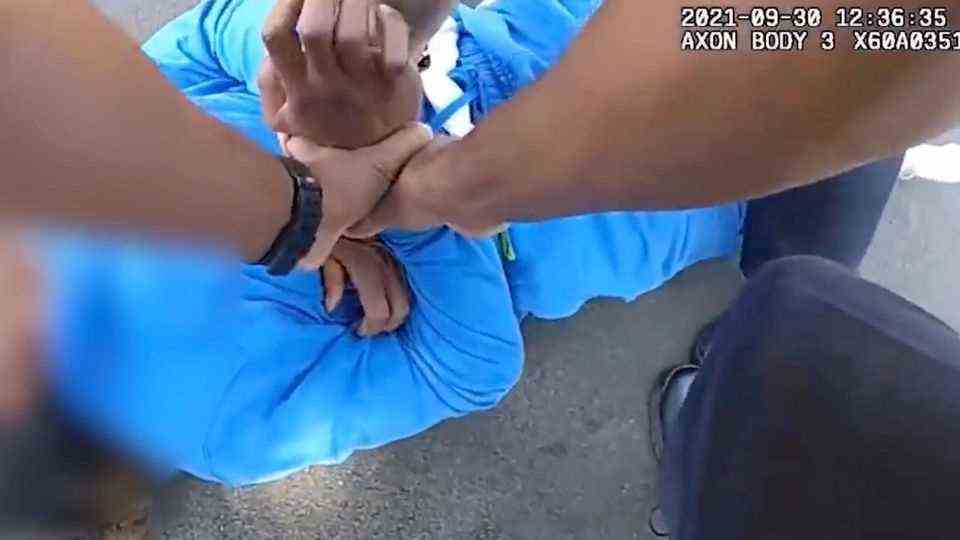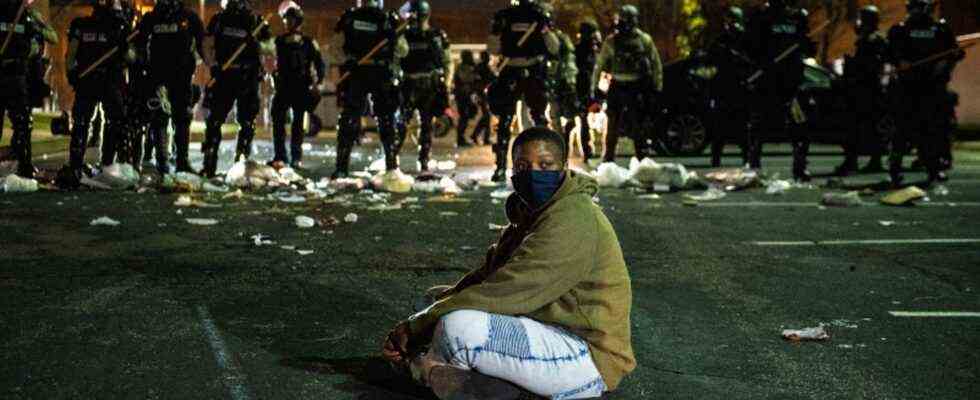Police officers immunity
Police violence complaints could become even more difficult in the US
The George Floyd case has rekindled the issue of police violence in the United States. Soon it could become even more difficult for victims to get their rights awarded
© imageSPACE via ZUMA Wire / DPA
The murder of George Floyd in May 2020 was the starting point for international protests against police violence. Police officers’ immunity could now be expanded.
“I can’t breath” were the last words of the American George Floyd when a police officer knelt on his neck until he suffocated. “I can’t breathe” – these four words became the mantra of international protests.
Millions of people around the world showed their solidarity with the victims of structural racism and police violence. As great as the impact of the George Floyds case was, it was just a sad culmination of excessive violence by officials against the population. In the United States, approximately 50,000 police violence cases are tried in district courts each year. Only a fraction leads to a conviction – there could be significantly fewer in the future.
Police officers in the US are under “qualified immunity”
Basically, police officers in the USA are under “qualified immunity”. It protects civil servants from claims for damages through civil actions – as long as they do not violate “clearly established law”.
The very principle of qualified immunity is a matter of dispute. Some call it the principle of a functioning police force. Others see it as a blank check for the mistreatment and killing of people. Since the assassination of George Floyd, kneeling on the neck and cervical spine has come under particular criticism. According to the Washington Post, more than 5,000 people have died in this police attack since 2015.
The concept of qualified immunity was introduced in 1967. The aim was not to regularly bring civil servants into complicated legal situations. As soon as the police used force in an arrest, they ran the risk of being charged with assault. On the other hand, there would be a risk of trial for insubordination. Fearing that the police would be incapacitated by a wave of unfounded lawsuits, the Supreme Court introduced partial immunity.
In 1986 the constitutional judges determined that this immunity protects all civil servants who are not “obviously incompetent” or “willfully break the law”.
Even now, exact precedents are rare
In 2001 the Supreme Court laid down a clear procedure for granting immunity: According to this, it must first be determined whether an official has violated the fourth amendment of the constitution, which protects the population from the disproportionate use of force by the police during arrest or in police custody. If this is the case, it must be determined whether “clearly established law” has been violated.
Where exactly this right begins, and from when a police officer no longer enjoys immunity, is a decision on a case-by-case basis, which is decided on the basis of precedents. This means that it must be determined whether someone has been convicted of the exact same offense. If this is not the case, the police officer will go unpunished.
This jurisprudence already entails some grotesque judicial decisions. As the humanist press service “hpd” reports, a police officer was acquitted in 2019 who had let loose a dog on a seated demonstrator. The injured party cited a previous case in which an officer let loose a dog on a lying demonstrator. However, the court did not see sufficient comparability between the two cases.
Police officers immunity could be extended
It is already very difficult for victims of police violence in the USA to fight for their rights. It could get even more complicated in the future.
As several US media reports unanimously, the opinions of at least two members of the Supreme Court have become public who believe a change in the doctrine of qualified immunity would be useful.

They apparently spoke out in favor of restricting examination procedures only to cases of the Supreme Court and recognizing these as precedents. That would amount to de facto immunity for police officers. While about 50,000 cases of police violence are heard before district courts in the USA every year, there are only 60 to 80 cases before the Supreme Court, as reported by the “Frankfurter Rundschau”.
Much of the legal basis could become invalid
Most of the precedents and thus the legal basis for possible proceedings would no longer be valid. Critics warn of an endless loop. According to a May 2020 study by Reuters that evaluated more than 500 police brutality cases between 2005 and 2019, the US Supreme Court is increasingly revoking judgments from lower-ranking courts.
Should it actually come to the fact that only those proceedings that were decided before the Supreme Court are considered as precedent, this way of jurisprudence in the USA would be undermined.
Sources: Frankfurter Rundschau, Vox.com, USA Today,CNN, Humanistic press service, US Case Law Malley v. Briggs, 475 US 335 (1986), The Yale Law Journal, Washington Post

